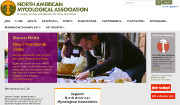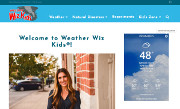
Center for Renewable Energy Advanced Technological Education Support Center (CREATE-SC)
createenergy.org
The Support Center for Renewable Energy Advanced Technology is focused on technician education in the realm of renewable energy. The Support Center has grown from the collaboration of three previously funded NSF efforts: The CREATE Regional Center at College of the Canyons, the Career Education for Renewable Energy Technology (CERET) consortium at Madison Area Technical College, and the Northwest Water and Energy Education Institute (NWEEI) at Lane Community College. The PIs and their respective institutions have a wealth of experience assisting other colleges and faculty members to establish new renewable energy programs. By leveraging this collective knowledge and experience, the CREATE Support Center will help others to climb the learning curve faster, cultivating and promoting robust renewable energy programs to meet surging workforce demands. There is a strong need to support new renewable energy programs, to help faculty to develop as professionals, and also to provide them with high quality instructional materials.
The goal of the CREATE Support Center is to advance the field of renewable energy by supporting two-year college renewable energy programs. This goal will be accomplished through five key objectives: 1) Providing support and mentoring for prospective PIs that wish to start or improve educational programs in a renewable energy technology; 2) Establishing and supporting additional renewable energy industry, business and academic partnerships; 3) Promoting technician careers and visibility and the public image of renewable energy; 4) Addressing technician knowledge, skills, and competencies needed for the evolving, converging, and emerging renewable energy technical workplace; and 5) Screening, validating, updating, and broadly distributing exemplary renewable energy materials, curricula, and pedagogical practices adapted or designed by ATE centers and projects and other appropriate sources.







